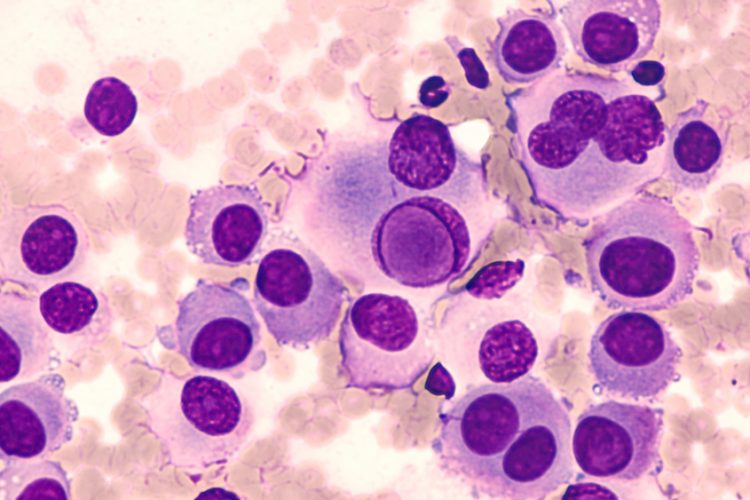Mediating BRAF-mutant melanoma resistance
Posted: 26 February 2024 | Dr Rhoda M Alani (Boston University Chobanian & Avedisan School of Medicine and Boston Medical Center), Ellen Capon (Drug Target Review) | No comments yet
In this Q&A, esteemed Dr Rhoda Alani discusses the epigenetic landscape of therapy resistant melanomas and elucidates how corin treatment impacts the reprogramming of melanoma cell phenotypes. The findings suggest a new treatment paradigm for melanoma which could also be relevant to targeted therapy resistance mechanisms for other cancer types.


What is the primary cause of resistance to mitogen-activated protein kinase (MAPK) inhibitors in patients with BRAF-mutant melanoma, and why does it occur mainly through non-mutational events?
The primary cause of resistance to MAPK inhibitors in melanoma is felt to be epigenetic as mutations associated with MAPKi resistance have only been seen in a small percentage of patients. It is not clear why these resistance mechanisms are largely epigenetic although many scientists speculate that the malleable nature of epigenetic events and associated tumour cell plasticity are highly advantageous to the tumour cell.
Regarding therapy resistant melanomas, why is the alteration of the epigenetic landscape considered significant, and what has been lacking in terms of validated targetable epigenetic mechanisms?
The alteration of the epigenetic landscape in terms of therapy-resistance mechanisms in cancers is significant as it shifts the paradigm regarding the therapeutic approach to cancers. Rather than solely identifying tumour-associated mutations which can be specifically targeted for effective treatment, we now need to consider how non-mutational events play into both the development of the primary tumour and the development of therapy resistance. It is also enticing to consider how epigenetic approaches may be used to prevent the development of both tumour progression as well as therapy resistance. In this way, a dual-pronged approach to both genetic and epigenetic changes in cancer is expected to be most successful.
What role does CoREST play in mediating distinct melanoma phenotypes, and how does corin treatment impact the reprogramming of melanoma cell phenotypes?
Our data demonstrate that the CoREST complex is a critical mediator of the distinct melanoma phenotypes, working through the regulation of both the phenotype-defining genes MITF and AXL as well as the master regulators of epithelial-to-mesenchymal transitions (EMT) and phenotype switching in melanoma and other cancers, SNAIL/SLUG/ZEB1/ZEB2. Amazingly, corin treatment of melanoma cells reverses the resistance-associated phenotypes of either an MITFhi/AXLlo or MITFlo/AXLhi tumour cell to an intermediate, and non-resistant state.
What outcome is noted when treating BRAF inhibitor (BRAFi)-resistant melanomas with corin?
What is remarkable here is that we show that the addition of corin to BRAFi-resistant tumour cells resensitises them to BRAFi therapies. This happens both in vitro and in vivo and suggests that a new treatment paradigm for melanoma might include metronomic therapy between a BRAF inhibitor and a CoREST inhibitor in order to prevent the development of therapy-resistant cancers.
How does the study indicate that CoREST inhibitors could benefit patients with BRAFi-resistant melanoma?
As mentioned above, our data suggest that a potential new treatment paradigm for melanoma might include metronomic therapy between a BRAF inhibitor and a CoREST inhibitor in order to prevent the development of therapy-resistant cancers. In addition, it is worth noting that phenotype-switching (EMT) and tumour cell plasticity are features of therapy resistance mechanisms in a large number of other cancers, most notably breast cancers, suggesting that the above paradigm may also be relevant to targeted therapy resistance mechanisms for other cancer types.
This study was published in the Journal of Clinical Investigation.
Author bio


Dr Rhoda M. Alani currently serves as the Herbert Mescon Endowed Professor and Chair of Dermatology at Boston University Chobanian & Avedisan School of Medicine and the Dermatologist-in-Chief at Boston Medical Center, a position she has held since January, 2010. Her research focus is on epigenetic regulation of melanoma and other cancers as well as wound healing, ageing biology and the development of novel epigenetic therapies targeting cancers and skin diseases and she is the owner of 15 issued and pending patents relevant to her research. Dr Alani also directs a clinical program at Boston Medical Center focused on patients with melanoma and other high-risk skin cancers and has been recognized as a 2024 Boston Magazine and Castle Connolly Top Doctor. She is also actively involved in teaching medical students, graduate students, and dermatology residents and is a frequent lecturer on the biology and genetics of melanoma.
Dr Alani received her M.D. degree with Honors and Distinction in Research from the University of Michigan. She went on to an internship in internal medicine at Yale-New Haven Hospital and a residency in dermatology at Harvard Medical School. Following her clinical training, Dr Alani was a research fellow at the Harvard Cancer Center where her work was highly regarded and led to the receipt of a prestigious research training award from the National Institutes of Health. Dr Alani further developed her research interests as a research fellow at Memorial Sloan-Kettering Cancer Center. She moved to Johns Hopkins in 1999 as an Assistant Professor of Oncology, Dermatology, and Molecular Biology and Genetics and was promoted to Associate Professor in 2004. She is the recipient of numerous awards and honours including membership in Phi Beta Kappa and Alpha Omega Alpha Honor Societies, the American Academy of Dermatology, the Society for Investigative Dermatology, the American Society for Clinical Investigation, the Association of Professors of Dermatology, the American Dermatological Association, the Women’s Dermatologic Society, the Society for Melanoma Research, the American Association for Cancer Research, the New England Dermatological Society, and the Massachusetts Academy of Dermatology. Dr Alani is a highly cited scientist with over 100 publications and presentations, and is a co-editor of the recent textbook, Melanoma in Clinical Practice (Springer, 2021). She has also served on the editorial boards of the Journal of Investigative Dermatology and Pigment Cell and Melanoma Research as well as a reviewer for dozens of prestigious scientific journals including Cell, Science, Nature and the New England Journal of Medicine. Dr Alani is a co-founder of Acylin Therapeutics, a biotechnology venture focused on the development of epigenetic therapeutics. Her work has been received with great acclaim by both the scientific and lay community and has been highlighted in The Lancet, ABC News, Fox News, Glamour Magazine, the Boston Globe, and The Baltimore Sun.
Related topics
Cancer research, Oncology, Therapeutics
Related conditions
Melanoma
Related organisations
Boston Medical Center, Boston University Chobanian & Avedisan School of Medicine








